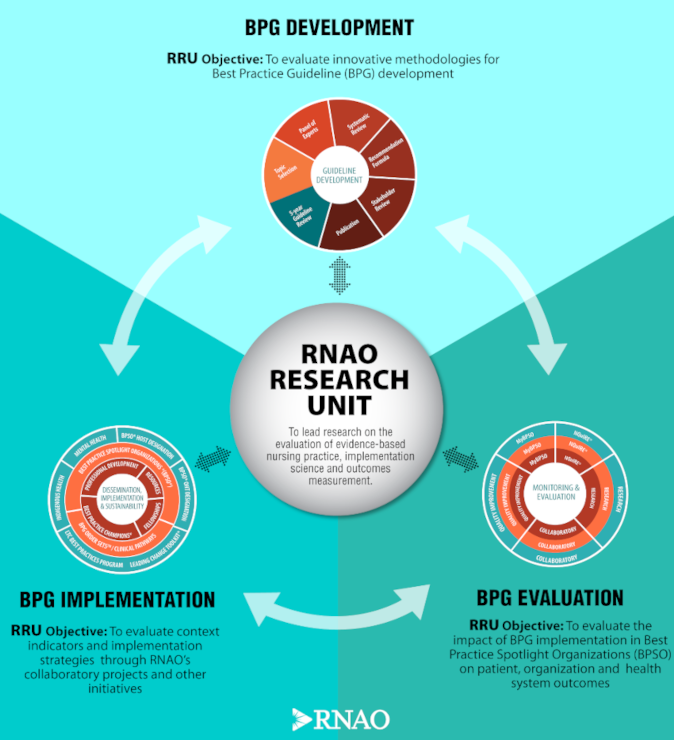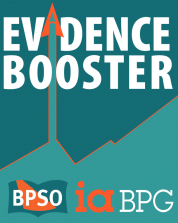Objectives

BPG development
To evaluate innovative methodologies for the development of RNAO's Best Practice Guidelines (BPG).
Example: Weaving Indigenous wise practices together with expertise on guideline development, implementation and evaluation to ensure culturally-safe practices for Indigenous partners.

BPG implementation
To evaluate BPG context indicators and implementation strategies through RNAO’s collaboratory projects and other initiatives.
Example: Evaluate context indicators (for example, leadership) and their impact on the uptake and sustainability of BPG recommendations.

BPG evaluation
To evaluate the impact of implementing BPGs in Best Practice Spotlight Organizations (BPSO) on patients, organizations and health system outcomes.
Example: Evaluate the impact of specific BPG clinical recommendations on outcomes (for example, rate of falls, percentage of falls resulting in injury, percentage of persons whose pressure injury worsened).










